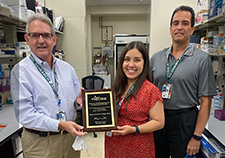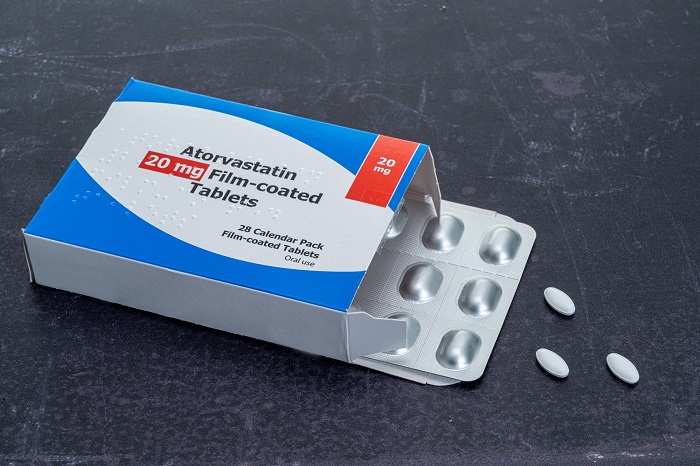Office of Research & Development |
 |


Height may be an unrecognized risk factor for several common health conditions, according to an MVP study. (Photo for illustrative purposes only. ©Getty Images)
May 10, 2023
By Claudia Gutierrez, Million Veteran Program

VA Study Documents Health Risks for Burn Pit Exposures

VA center training the next generation of researchers in blood clots and inflammation

Could cholesterol medicine reduce dementia risk in seniors?

VA Researcher Named One of U.S.’ Top Female Scientists
The 2023 National VA Research Week, May 9-12, is celebrating "Cutting-Edge Care Through Research." Since 1925, VA researchers have been discovering new ways to treat disease and improve Veterans' health. VA has a proud history of investigating cutting-edge technologies that have the potential to revolutionize clinical care.
Since 2011, nearly a million Veterans have joined VA’s largest research effort to improve health care. The Million Veteran Program (MVP) is using genetic, health, lifestyle, and military background information to understand how genes affect illness and health. Thanks to Veterans who have volunteered for the program, we know more about conditions like posttraumatic stress disorder (PTSD), depression, anxiety, heart disease, and Alzheimer’s disease.
This is just the beginning of what MVP research has to offer.
Here are five ways Veterans in MVP are transforming the way we understand health and wellness in Veterans.
Researchers looked at the genes and health records of 280,000 Veterans in MVP and found 127 medical conditions with risk factors linked to height. Being tall appears to protect people from cardiovascular problems but may increase risk for other conditions like peripheral neuropathy and circulatory disorders. The study suggests it may be useful to consider a person’s height when assessing and monitoring their risk for disease.
Yogurt is good for heart health, according to a 2021 MVP study that looked at the medical records and lifestyles of nearly 200,000 Veterans in MVP. Researchers found Veterans who eat more yogurt have higher levels of so-called “good cholesterol,” also known as high-density lipoprotein (HDL), which can reduce the risk of heart disease and increase longevity.
Health trends during the pandemic showed that Black patients with COVID-19 were more likely than white patients to die from acute kidney failure. MVP researchers discovered that this disparity was linked to two mutations of the APOL1 gene, a combination found in roughly 1 in 8 people of African descent. This discovery, which has led to research into a new drug targeting APOL1, was possible because of the more than 150,000 Black Veterans in MVP. MVP is the most diverse biobank in the world, giving genetic studies the opportunity to include groups that are often underrepresented in this type of research.
In a first-of-its-kind study, MVP researchers found a clear genetic link between PTSD and traumatic brain injury (TBI) and the risk of dementia and Alzheimer’s disease. The study showed that the combined presence of PTSD, TBI, and a variant of the APOE gene interact to increase Alzheimer’s disease risk. Researchers hope this growing understanding of dementia and Alzheimer’s disease will pave the way for better, more accurate screening and treatment.
In a 2022 study, MVP researchers compared the genes of Veterans who attempted suicide to the genes of Veterans with no report of a suicide attempt. They identified several genetic markers present in Veterans with suicidal behavior that did not appear in those without suicidal behavior. This discovery may one day help doctors better screen Veterans at risk of suicide and prevent attempts in the first place.
To learn more and join MVP today, visit mvp.va.gov or call 866-441-6075. You do not need to be enrolled in VA health care to sign up.
VA Research Currents archives || Sign up for VA Research updates